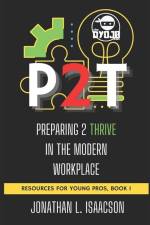av Lester G Reid
289,-
Mastering Financial Accounting: A Comprehensive Guide for Business Students and Accountants is a valuable resource that aims to equip readers with a thorough understanding of the principles and practices of financial accounting. This comprehensive guide is designed to cater to both business students and professionals in the accounting field, providing them with the knowledge and skills necessary to excel in financial accounting. The title itself, Mastering Financial Accounting, conveys the intention of the guide to go beyond basic comprehension and enable readers to achieve mastery in this critical discipline. Financial accounting serves as the language of business, allowing organizations to communicate their financial performance and position to stakeholders. Mastering financial accounting is essential for making informed decisions, analyzing financial data, and ensuring compliance with accounting standards and regulations. The guide covers a wide range of topics, starting with the fundamental principles and concepts of financial accounting. It provides a solid foundation by explaining the accounting equation, double-entry bookkeeping, and the basic elements of financial statements. The book then progresses to more advanced topics, including the recognition, measurement, and reporting of various assets, liabilities, equity, revenues, and expenses. One of the strengths of this guide is its emphasis on practical application. It goes beyond theoretical explanations by providing real-world examples, case studies, and exercises that simulate actual accounting scenarios. This approach allows readers to develop the necessary skills to apply financial accounting concepts in practical situations. By mastering these skills, both students and accountants can confidently analyze financial statements, interpret financial data, and make informed decisions. The guide also recognizes the importance of technology in modern financial accounting. It addresses the integration of accounting software and technology tools, highlighting how they can enhance efficiency, accuracy, and reporting capabilities. Readers will gain insights into the use of accounting software for recording transactions, generating financial reports, and automating routine accounting tasks. Furthermore, the guide recognizes the evolving landscape of financial accounting and the impact of international financial reporting standards. It provides an overview of the key differences between various accounting frameworks, such as Generally Accepted Accounting Principles (GAAP) and International Financial Reporting Standards (IFRS). This knowledge is crucial for professionals working in multinational organizations or preparing financial statements for global audiences. Another valuable aspect of this comprehensive guide is its focus on the role of financial accounting in decision-making and performance evaluation. It explores how financial statements are used to assess the financial health of an organization, evaluate profitability, analyze trends, and support strategic planning. By understanding the relationship between financial accounting and decision-making, readers can contribute to the overall success of their organizations. Mastering Financial Accounting: A Comprehensive Guide for Business Students and Accountants is a must-have resource for anyone seeking to gain a deep understanding of financial accounting. It caters to both students embarking on their accounting journey and professionals looking to enhance their skills. With its comprehensive coverage, practical approach, and emphasis on real-world application, this guide equips readers with the knowledge and tools to excel in financial accounting and contribute to the financial success of their organizations.





























